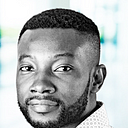Member-only story
To Improve Your Intelligence, Be Clear About What You Know And Don’t Know
Don’t assume you know more than you really do — stay curious
Einstein had a curious mind. He knew the limits of his knowledge but was intellectually curious enough to discover amazing secrets about our universe.
“I have no special talents. I am only passionately curious.” He said. Einstein learned physics because he had an open mind — he was very observant and liked to ask thought-provoking scientific questions.
The Wright Brothers never graduated from high school.
Walter Pitts, who laid the foundations of cognitive sciences, taught himself mathematical logic, psychology, and neuroscience.
Charles Dickens started self-learning at the age of 15. He wrote 15 novels and hundreds of short stories in his lifetime. By the 20th century, he was recognised as a literary genius.
Susan Fowler, Anna Wintour, Henry Ford, John D. Rockefeller and hundreds of other global influencers learned to be experts on their own.
They knew the limits of their knowledge but most importantly, how much they could learn on their own. Knowing what you don’t know is the beginning of both knowledge and wisdom.
